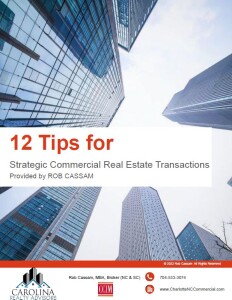This month’s newsletter has just been released! Check out the latest tips for tenants and users of commercial real estate space.
In this issue
- Should You Lease or Own Commercial Property
- The Suburban Office Buildings And Good Planning
- Acquiring Land For Development
- Commercial Real Estate Representation
Whatever the kind of property used, the user has the option of purchasing or leasing. Should you buy the house you live in, or lease it from someone else? With few exceptions, there would be an overwhelming response to “own it”. The benefits weigh heavily toward ownership. With business property, the answer sometimes may be a lease instead. Real estate investors who enter into a long-term lease instead of buying property make a decision with implications that can have an effect on both financial and tax positions. The important difference of the long-term lease from a straight purchase (outright or with a loan) is borrowing (renting) the property itself for financial benefit…(more)
Demand for commercial real estate continues to rise. Suburban office buildings remain many investors primary acquisition target. These investors reason that a suburban office building will almost always be a good buy. Careful choices must be made, as there must be a demand for office space in the area and a gradual increase can be made in rents. The long-term demand for office space looks good….(more)
Acquiring land for development is necessary no matter what kind of market we are in. Professional real estate assemblers are always looking at and acquiring under-utilized sites within cities or in suburbs. Here are some ideas on how those professionals do it. A Thorough Knowledge. Only purchase or option property in well known localities to reduce the risk of unexpected surprises. If the locality is not familiar, seek out local professionals for their opinions……(more)
There are a number of ways to buy, sell or exchange investment or commercial real estate. Having the knowledge of what you can do in some tax situations can be the difference between an annual profit or loss in a property that you intend to acquire or one that you already have in inventory. The professional commercial real estate broker is in the position to represent clients in real estate transactions by setting up sales, exchanges, leases, purchase and sales of options, and management of real estate. A professional real estate practitioner must stay aware of current tax laws and court decisions in order to structure transactions, but does not give legal or tax advice (unless he/she is also an attorney or a certified public accountant). In any complex transaction that might result in changes in any owner’s legal or tax situation, the other members of the “consulting team” should be the owner’s attorney and CPA. We always recommend meeting with these other professionals during the planning and closing of major real estate transactions…….(more)




